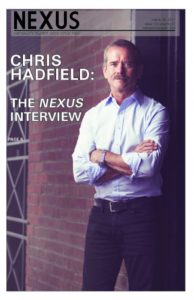Science has its own language; for those who wish to become its children, that quickly becomes apparent. This sentiment really applies to almost every profession, hobby, and social scene. The language of business, the language of art: these allow for the conversation to deepen and, within a very specific scope, become easier.
The problem with these languages is that, when one looks through the wide-angle lens and tries to take in the multitude of information that the many disciplines have to offer, there falls before them an intentionally complicated path.

When two astrophysicists walk into a bar, they are able to speak with each other unhindered because they speak the same level of pompous; it’s the same for two art critics. Though it may be unintentional, disciplines become highly exclusionist based on the fact that they ignore the need for a version of the information conveyed in plain-speak.
Art, science, business—what are they for if not for the common man? It has come about that disciplines are overly self-indulgent to a point where those not directly within the clique are practically ignored.
The educated complain about the ignorance of the masses; how can they not be ignorant when all the books are written in cipher? There are complaints on the underfunding of the sciences, but why should the public feed the beast that turns its back on them in favour of its own reflection? How many times has the common man heard, “You wouldn’t get it”? To be able to explain to a person with little prior knowledge of the topic what is being said should be a major target for teachers.
It’s understandable that some things are complex to a level where it becomes convoluted to explain, and some subjects confuse even those who speak the language, but this is a challenge that all should feel compelled to rise to. The ultimate proof of a person’s grasp of a subject is the ability to be able to break it down into words that the unknowing can know.
To traverse an ocean by swimming is almost impossible, but to step into the water should be simple. We must work to be able to open the gates of accessibility to the lambs of the common field. We must ensure that our children are not too afraid of getting wet to dip their toes.
